

According to the laws of Hong Kong, providing sexual services, such as hand job, oral sex, and intercourse in return for financial gains or other forms of profits, are regarded as "prostitution". Those who engage in "prostitution" are thereby regarded as "prostitutes". Consistent with our principle of "sex work is work", AFRO insists on the use of "sex work" and "sex workers" to replace the words "prostitution" and "prostitutes" respectively. Other slangs used to describe sex workers, such as "Chicken" (雞 "Gai1"- used to describe female sex workers ), "Duck" ( 鴨 "Aap3"- used to describe male sex workers), "Northern Women" (北姑 "Bak1 Gu1"- used to describe sex workers from Mainland China), "Local" (陀地 "To4 Dei6" – used to describe local sex workers), "Compensated girl" ( 援交妹 "Wun4 Gaau1 Mui1") are considered derogatory terms.
In addition, sex workers also provide non-sexual services, such as singing, dancing, massages, etc. Some overseas sex worker groups and scholars may even expand the understanding of the term "sex worker" to include pornographic performers, erotic dancers, people who sell second-hand underwear and sex cam models, etc.
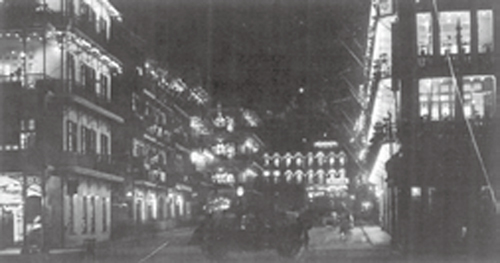
Once upon a time, sex work was legal in Hong Kong. In the early 19th century, the Hong Kong government has thrice regulated sex work through setting up "red light districts" and licensure requirements. Brothels were allowed to run legally in designated areas. Shek Tong Tsui was one of the more upscale red-light districts. It lasted till the early 20th century in the 1930s when the system of "licensed prostitution" was abolished; the Hong Kong government began to ban most types of sex work.
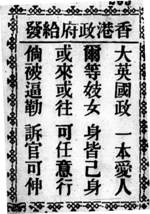
In 1845, the Hong Kong Police Force used to collect "prostitutes’ donation", which was used to cover the cost for hospitals that treated sexually transmitted infections. The money that remained after expenses were managed by the Police Force.
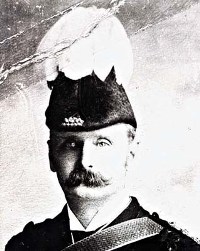
However, in 1847, the Police's Chief Magistrate, William Caine, refused to disclose the account details, prompting the British government to revoke the "prostitutes’ donation".
In 1857, the Hong Kong Government set up the "Venereal Disease Ordinance", requiring all brothels to apply for licenses and pay the government HK$4 a month, which went towards the Treasury directly. Mandatory health checks were imposed on sex workers. Brothels were categorised into the "licensed" ones or the "private" ones (unlicensed).
In 1873, Governor Sir Kennedy introduced the "Protection of Women and Juveniles Ordinance" which prohibited sex work once again.
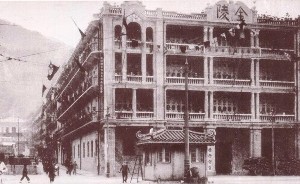
In
1879, the government re-introduced the licensing system. Licensed brothels were
allowed in particular areas like Mong Kok, Shek Tong Tsui, Wan Chai, etc. This
policy was once again revoked in 1932. Since then, brothels have remained
prohibited.
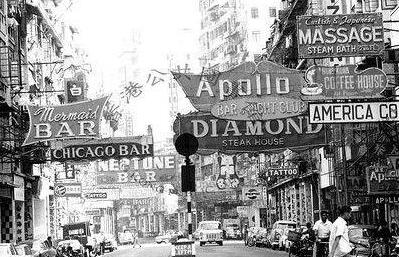
Following the prohibition of sex work and brothels' closure, sex workers scattered, but they never disappeared. They only changed their mode of operation and continued to provide sexual services to their clients discretely. According to the laws of Hong Kong, as long as there is no more than one sex worker within the same premises, or if the premises is not primarily used for the organisation and provision of sexual services, that premises will not be considered as a "vice establishment" (Note 1). Business owners who used to run brothels and those who wished to profit from this industry creatively evaded the laws by running ballrooms, bars, massage parlours, and other entertainment establishments.
Note1: According to Section 117 of the Hong Kong's Crimes Ordinance (Cap 200) and its definition of "Vice establishment":
Premises, vessel or any place shall not be treated as a vice establishment for the purposes of this Part unless—
(a) the premises, vessel or place are or is used wholly or mainly by 2 or more persons for the purposes of prostitution; or (Amended 90 of 1991 s. 2)
(b) the premises, vessel or place are or is used wholly or mainly for or in connexion with the organizing or arranging of prostitution
In other words, if only one sex worker works in the premises, it will not be regarded as a "Vice establishment" under the law.
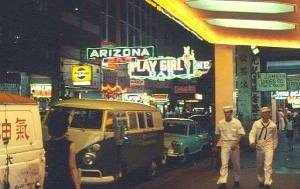
Even before WWII, areas surrounding Lockhart road and Fenwick Street in Wanchai had already been a prosperous bar district. During WWII, the bar district was turned into a red-light district by the Japanese military. After the war, the U.S and British navy chose Hong Kong as one of their vacation spots. The Hong Kong Government arranged for the naval ships' motorboats to be parked at the Fenwick Pier. It breathed new life into the area once again, attracting a sizable number of "unlicensed prostitutes" and navy to socialise in the area.
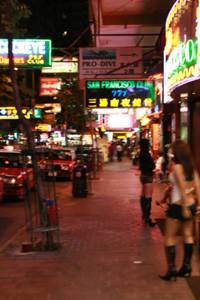
This carried on till the 1960s when the
topless bars rose to prominence in Wanchai. Some topless bars opened in Tsim
Sha Tsui eventually as well.
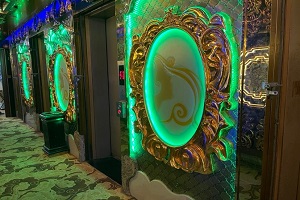
Following
Hong Kong's economic boom in the 70s and 80s, nightclubs, karaoke clubs, and
saunas emerged. Business owners continued to work around the law, using various
methods to run the sex industry. For example, some establishments would provide
erotic dance services in private clubs for "members only". Some "Female Barber
Shops" provided erotic massages. The so-called "fish-ball stand" brothels (魚蛋檔
Jyu4 Daan2 Dong3), which were very popular in the 80s and early 90s, also
operated under the guise of "recreation centres".
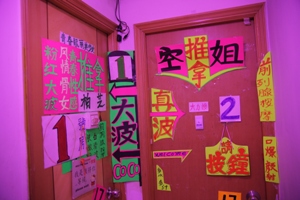
Hong Kong's economy began to slow down in the 90s. Vast numbers of local factories moved north to Mainland China. High-end clients reduced their visits to nightclubs, clubhouses, etc. Newly emerged entertainment establishments in Mainland China also attracted many consumers due to lower prices. The business of large-scale local karaoke clubs, nightclubs, and saunas began to drop. Since then, Hong Kong's sex trade services transitioned from large establishments to mainly medium to small operations. Numbers of "Call-girl" centres, Shiatsu massage centres, and "one-sex worker apartments" soared.
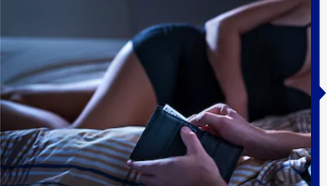
In the 2000s, Internet bars/cafe once became very popular along with the development of the internet. It, however, fell out of popularity later due to technological advancements.
At around the same time, influenced by Japanese culture, the term "compensated dating" emerged in Hong Kong. It is broadly used to describe young adolescent girls who go on "dates" or even have sex with adults in exchange for money or other types of profits.
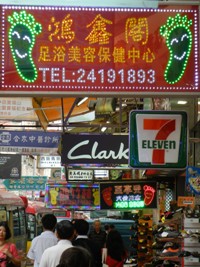
In
the next 20 years, compensated dating, call-girls, escorts, etc., which
operated virtually migrated from the world-wide-web to phone applications. It
became even more underground and "atomic". As Hong Kong's economy continued to
shrink, "one-sex worker apartments" and small-scale foot massage parlours
became the popular modes of sex work.
